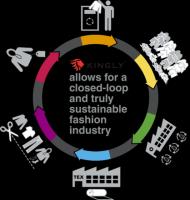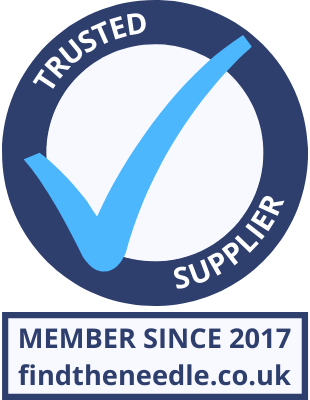 Add My Company
Add My Company
Sign In
The Kingly Closed Loop Explained
26-01-2021

What does it mean and how do we keep the promise?
The future depends on what we do now
The future of our planet’s survival depends on how quickly and how effectively we change the way we live. And this isn’t just about big government policy – it includes individual choices and it’s about how we make things.
So Kingly has taken a leaf out of nature’s book. Watching nature, seeing how there are few straight lines but plenty of virtuous circles, we have made a deliberate choice to implement closed circular loops in our manufacturing, and in every other aspect of our business. We’re choosing ethically sourced raw materials and we’re choosing to design out pollution and waste.
“It’s the environment, stupid”
In the last century, the clever answer to big political questions was usually, “It’s the economy, stupid”. Well, we all need healthy economies, but we also know that a healthy economy is a false economy if the world is sick. We need a healthy planet too.
Traditionally, industries have used a straight line model of production. It’s based on taking and not giving back. It’s based on using and throwing away. And the ideal minimum price usually results in maximum cost to the environment.
The circular economy, on the other hand, is based on responsible use of resources, reusing, re-purposing and recycling. It’s a deliberate choice designed to reduce pollution and regenerate natural systems.
It is one of the most powerful ways to bring about change. Everyone can help.
Tackling the fashion model, fast.
The fashion and clothing industry has long been guilty of irresponsible sourcing of raw materials, high levels of pollution, and extra-ordinary amounts of waste. In the darkest shadows of this tradition is ‘fast fashion’.
The sector consistently fails to replenish what it takes, wastes much of what it overproduces, and dumps surpluses on developing economies, undercutting their jobs. It overuses toxic chemicals and harms both the environment and human health.
Opportunities for change are enormous.
Is the Circular Economy the solution?
A circular economy creates value through efficient use of resources that have been responsibly sourced, including ensuring restorative action in the landscape and the replanting of beneficial crops. It ensures continual use and re-purposing of products into new life cycles.
Thus, demand for the production and consumption of exploitative raw materials is constantly under pressure to reduce. Opportunities for upcycling and re-cycling proliferate and, as the trend grows, it gains momentum. Already, in Japan, it is obligatory to recycle all household appliances. The time will come when to choose otherwise is unacceptable.
A revolution in the rag trade
Kingly Ltd is pioneering the closed circular loop in the garments industry. They are leading the charge to make the garments industry environmentally sustainable.
It’s founder and CEO, Rob Armour, had a successful career in the garments industry. But he had become increasingly frustrated with the disregard for the environment shown by so many producers. He knew there was a better way and starting his own business seemed the obvious solution.
Kingly – which is a leading producer of promotional merchandise including socks, T-shirts and towels – operate a circular closed loop in their manufacturing processes.
First, all resources are ethically sourced and then, in production, all surpluses, waste and trimmings are recycled or upcycled. Organic cotton come only from regions where water consumption does not impact on local need; and synthetic fibres (polyester and nylon) will be 100% post-consumer from April 2021. For other products, for example, hand sanitizer gel, bottles are 100% recycled plastic – 100% R-PET.
One of their ground-breaking products is up-cycled socks sold in compostable bags, which won the prestigious 2020 Promotional Gift Award. One pair of upcycled socks saves a staggering 1300 litres of water per pair and no dyes or chemicals are used in the upcycling process. Cartons and boxes use Forest Stewardship Council (FSC) certified cardboard, and item tags are also FSC certified card.
Why is it better?
This way of doing business has clear benefits. Initially, it reduces waste, then cuts it to an absolute minimum. It’s cleaner. Ecological impact is cut and the use and value of goods is increased. Over longer periods of time, significantly fewer resources are used. When waste is regenerative, keeping the loop closed is easier and more efficient.
However, for the circular economy to thrive it needs more than one cheerleader. A global rethink is required. We need to consider the implications of everything we do and buy. We need to remodel how we make, package and transport products.
We need to re-think design, so products have the inbuilt capacity for re-use, multiple uses and re-incarnation in infinite future life cycles. All this is possible while still maintaining a healthy economy.
And for the sceptics? Kingly’s ethical approach has led to an increase in sales volumes and profitability.
How does the loop gain traction?
For maximum benefit it is essential to work collectively. Individual businesses must reach out to all partners and establish virtuous and purposeful eco-systems. It can be hard, but it can be done, even if it takes time. All stakeholders have a part to play, regardless of size or market share, and it can work all the way through supply chains.
Above all, credibility needs to snowball, and here big corporations really do have a part to play. They can insist that multiple-life cycle, longevity and restorative value are deliberately designed into all new products. A good example is how Mercedes Benz, Porsche, BMW and Renault have already moved to using eco-friendly materials for their car interiors, including ECONYL® Regenerated Nylon.
Large companies can persuade each other and governments to adopt sustainable policies that have real teeth. Everyone can insist on the application of the United Nations 17 sustainable development goals.
Where are we going now? And how do we get there?
Many businesses are becoming more environmentally, and socially, responsible. But progress still may not be fast enough to, quite literally, save the planet for our children and our grandchildren.
Individual businesses need to sustain the pressure on their partners and consumers need buy with reference to sustainability. The more people who make their choices on this basis, the more that manufacturers and governments will need to take notice.
But these choices need not reduce the standard of living or the quality of life. If anything, the reverse will happen. Without doubt there are still compromises to be made and imperfect solutions to be used, but clarity of vision and increased certainty of purpose do seem to be gaining traction.
This is not least because of the radical way in which the Coronavirus (Covid-19) pandemic has made us re-evaluate our priorities. Faced with dreadful circumstances, the scientific community has created effective vaccines at a speed no-one thought possible.
If this can be achieved, is there any reason on earth why we cannot close the circular loop for responsible manufacturing?
For more information on The Kingly Closed Loop Explained talk to KINGLY LTD
Enquire Now
List your company on FindTheNeedle.

